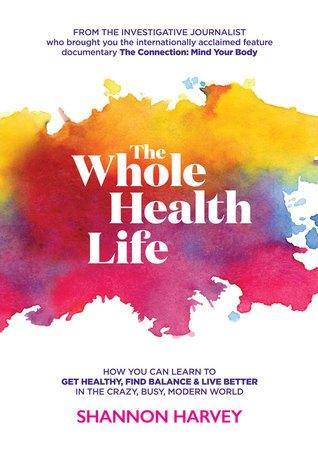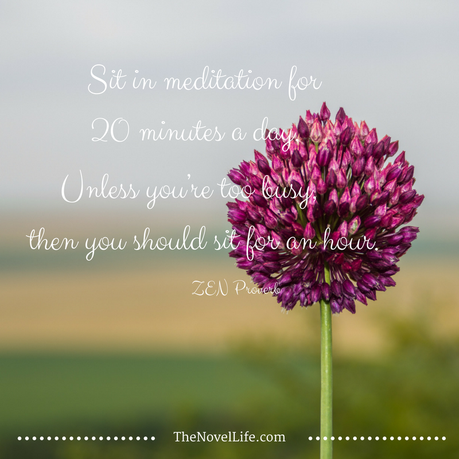 The Whole Health Life by Shannon Harvey
The Whole Health Life by Shannon Harvey Published by The Whole Health Life Publishing on November 17th 2016
Genres: Non-Fiction, Wellness
Pages: 320
Source: complimentary review copy
Amazon
Goodreads

I have been given this product as part of a product review through the Chronic Illness Bloggers network. Although the product was a gift, all opinions in this review remain my own and is in no way influenced by the company.
At the beginning of January I shared my nutrition experiment of giving up sugar. I’m now through an entire month of little to no sugar and still no migraine! I’ve had a couple of days of a low-grade headache that didn’t want to go away, but nothing like the daily migraines that were crippling me. That doesn’t mean it’s easy. Goodness knows going from being a sugar-aholic to no sugar has been one of the hardest things I’ve ever done. The trick is in telling myself this is an experiment – an experiment to see if all those health and nutrition books I’ve read are right, or just a fad.
The latest book I’ve read, and probably the best overall with regards to health, nutrition, and exercise, is The Whole Health Life. Written by Australian journalist, Shannon Harvey, The Whole Health Life is an in-depth look at the scientifically-proven connection between mind, body, and health. The book covers a range of possibilities affecting our health, from stress and emotions to food, environment, and even our sleep patterns. The more I read about health and wellness, the more I realize how interrelated/interconnected everything is.
9 Lessons from The Whole Health Life
- We must find healthy outlets to relieve stress. It is literally taking years off our lives. A few recommended stress-relieving activities include listening to music, dancing, walking through nature, even wood-working – whatever helps you to get out of your head and into the moment.
- We can invoke a “relaxation response” to counteract the bad stress by simply including prayer and/or meditation in our lives. The rituals of most major religions incorporate the meditative mindset we need to counteract cortisol damage or the flight or fight response.
- A surprising finding is that women who perceived themselves to have a great deal of stress in their lives had a greater rate of cellular aging. In fact, women who perceived themselves to have high stress had aged the equivalent of 9-17 additional years.
- Meditation makes our brains stronger, fitter, younger. “Meditating for only 20 minutes a day over three days results in a significant decrease in sensitivity to pain.” I’m on day 15 of a daily meditation regimen. I’ve only worked up to 10 minutes/day but I can tell a difference in my overall wellbeing.
- The power of the placebo is scientifically proven to be valid! Did I mention worrying makes us sick? Literally! Our minds are powerful tools.
- Consider a mindset reset. “ Thinking things like ‘This task is exciting,’ rather than ‘this task is scary’ can help change how you perceive the situation.
- Exercise in spite of obstacles. Something my MS doctor has been telling me for years. The more I can exercise my muscles the more I will be able to use my muscles.
- Not only is exercise important but a variety of movement is also critical. For example, if running is your jam, add some yoga and strength training into the mix.
9. Make technology work for you rather than against you. Set hourly reminders to stand up and move, roll your shoulders, stretch. Your body will thank you.

Final Thoughts
As I was reading the book a second time, I was amazed again at the wealth of information covered in The Whole Health Life. Not only that, but the scientific papers the author had to read (and decipher) were numerous. I kept thinking why have we not been told this stuff before?
At the end of each chapter the key takeaways are noted, but more importantly, tips on how to get started making the small changes in your life based on the science and information shared in the respective chapter. AND, for a bookworm this is probably the best – each chapter ends with additional recommended books to read!
As an additional resource, the author created a documentary making this information even more accessible. Plus, there are in-depth interviews with many of the scientists who have made breakthroughs with their mind, body and health studies. The information Shannon Harvey has made available through the book, the documentary and her blog, broken down into bite-sized chunks in non-scientific speak, is resourceful and invaluable. If you are looking to improve your overall health, The Whole Health Life is the book for you. I know I will continue to work through the recommended changes to see if I can not only knock out the migraines but also throw the MS into a permanent remission!
To view the first fifteen minutes of the documentary, visit The Connection here. Purchase The Whole Health Life from Amazon | Barnes and Noble | Indiebound.
To learn more about Shannon Harvey or to follow her blog and podcast, visit The Whole Health Life. You can also connect with Shannon Harvey on Twitter | Facebook.

